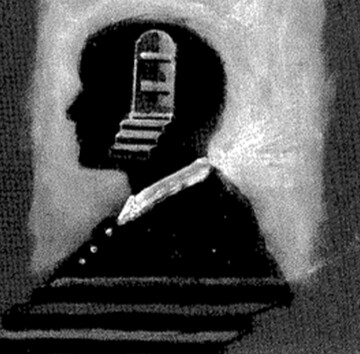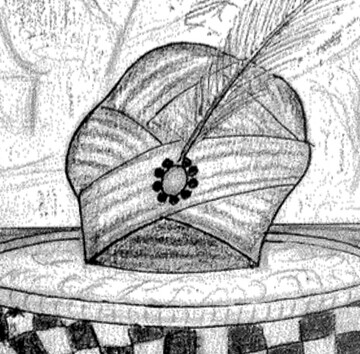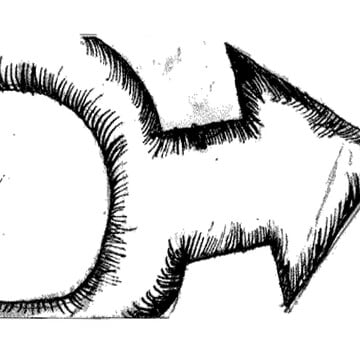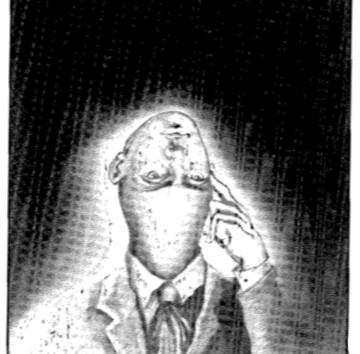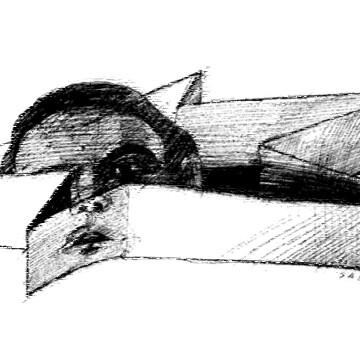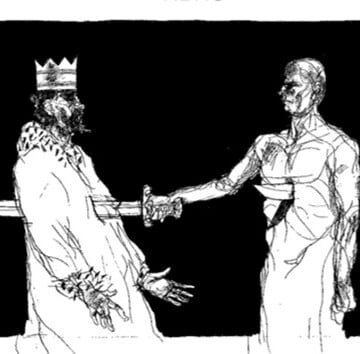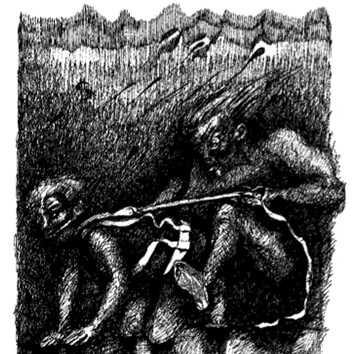With the victory of the Social Democrats in Germany, a year and more after Labour finally managed to win a British election, 11 of the 15 states in the European Union now have governments in the socialist tradition. That is surprising. Socialism is yesterday’s idea, after all, and since the Soviet collapse of 1989-90, hardly...
Author: George Watson (George Watson)
Live Right, Think Left
“Anglo-Saxon hypocrisy” is a famous phrase, and in January 1996, Harriet Harman, Labour spokesman for health in the British House of Commons, became an object of scorn on both sides of the House by sending her 11-year-old son to a school outside the public sector, chosen by entrance examination. She was later, after 1997, a...
A Future for Critical Theory?
A questionnaire about future needs recently sent to a department of literature provoked at least one interesting reply: “We do not need a new post in Critical Theory. Theory is Old Hat.” An old hat, they say, is better than a bare head, and there can be no quarrel with the view that critical theory...
In Praise of Elites
Being a lifelong elitist myself, I have long had a sneaking sympathy for a Trollope character, Sir Timothy Beeswax. In The Dune’s Children (1880), Beeswax is a dignified old politician who lives not for power but, quite unashamedly, for the trappings of office. Parliament, he believed, was a club so eligible that any Englishman would...
Conservatives and the Free Market
When everyone “hastens through by-paths to private profit,” Samuel Johnson remarked confidently in 1756, “no great change can suddenly be made.” So the market can be conservative in its effects. The notion is startling, especially from the pen of an 18th-century Tory, and it hardly matters for the moment whether the market Johnson had in...
Don’t Give Us India
“Don’t give us India,” Samuel Johnson once told Boswell, when the talk was about how widely mankind differed in its view of chastity and polygamy. Montesquieu, he said, the great pioneer of anthropology, was in many wavs a fellow of genius. But whenever he wants to support a strange opinion, he quotes you the practice...
Coleridge and the Battle of Waterloo
There is a story told about the late Roland Barthes. Once, in his Paris seminar on critical theory, a British visitor bravely remarked that something he had just said sounded rather like a point made by Coleridge in the Biographia Literaria. An embarrassed silence followed. Then Barthes, in his ponderous voice, spoke: “One can never...
The Fading of Feminism
Writing her column the other day in a London newspaper, a feminist confessed that the women’s movement that started some 25 years ago had “spluttered to a halt.” Many a middle-aged feminist nowadays will tell you the same thing. The young, they will say with an air of regret, meaning their daughters and the friends...
Alfred Rosenberg: The Triumph of Tedium
A few months after the outbreak of war, in January 1940, Nazi leaders held a merry meeting. They had plenty to be cheerful about. Poland had been crushed in a few weeks, and the new Soviet alliance had been “sealed in blood,” as Stalin put it. By a secret agreement in the Molotov-Ribbentrop pact of...
The Crusade to Nowhere
My last conversation with Edward Thompson, the Marxist historian, was at the gates of Durham Castle. That, on reflection, was how it should have been. There was always something slightly grand about him, as if a castle, or at least a country mansion, might be a natural place for him. Durham Castle is now a...
The Fear of the Original
The demands of life are endlessly self-contradictory. It is a supreme compliment in intellectual life, for example, to be called original; but it can be alarming to discover something—so alarming that people have been known to turn tail and run when they do. To take a philosophical instance: Leibniz, as Bertrand Russell tells in his...
How Do You Know?
How much is actually known and not just supposed or imagined? A lot more, surely, than it is fashionable to think, at least in the world that moral and literary theorists seem to inhabit. So much more, that it is easy to forget how much by which we interpret the world and its texts is...
Forgotten Voices: How Buchenwald Lived On
When I visited Buchenwald concentration camp, near Weimar, in 1988, in what turned out to be the last year of German partition, the Soviet Union’s use of the camp for five years after World War II was hardly to be spoken of inside what, with memorable irony, was still called the German Democratic Republic; my...
The Easter Rising and the IRA
In April 1991 an aged Rolls Royce, vintage 1949, drew up to a small crowd outside the post office in Dublin. The president of the Irish Republic, Mary Robinson, stepped out for a brief ceremony, lasting less than half an hour, to mark the 75th anniversary of the Easter Rising in 1916, when a group...
The Terror of the Obvious
There is a painting on my wall that fascinates me. That is partly because it is beautiful, partly because of the story it tells. It is a large Dutch oil of 1658 by Hendrik van Vliet, better known for his church interiors, and it shows two men solemnly seated at a dark table lit only...
Dahrendorf and Burke, 1789 & 1989
Just two centuries on, an echo of Edmund Burke and his most celebrated book has opportunely come out of Oxford. It is by Sir Ralf Dahrendorf, a German-born political scientist who is now warden of St. Antony’s College there; and it is called Reflections on the Revolution in Europe in a Letter Intended to have...
Conversation in Warsaw
Several Nazi concentration camps, as I explained in a recent Chronicles article called “Buchenwald’s Second Life” (July 1989), were used by the Soviet occupying authorities in East Germany for some five years after the war, and for their original purpose. That was once a secret, but we are now in a wholly new age. Some...
The Ignorance of the Doctors
Montaigne in his Essays called it ignorance doctorale (1.54). Four hundred years later an American journalist called it “educated incompetence.” It means the sort of nonknowledge, or anti-knowledge, that can follow upon higher learning, especially when theorizing about politics, morality, and the arts. That, in the first age of mass higher education in human history,...
Buchenwald’s Second Life
Even in an age of glasnost, hardly anyone troubles to recall that when the Soviet Union occupied East Germany in 1945 it kept two Nazi concentration camps in full use for nearly five years, till February 1950, and at their old task of death. Soviet Buchenwald comes as a surprise, and that surprise is perhaps...
The Cost of Revolution England & 1789
The twin centenaries of the English and French revolutions are now upon us—1689 and 1789—and they seem fated to coincide with a moment when the word “revolution” has lost all its prestige and even much of its point. In 1987, for example, Paris was shaken by a book expressively called The Cost of the French...
Prophet of the Left
I first met my future colleague Raymond Williams in 1959, when I was a young lecturer in English literature at Cambridge and he still a tutor in adult education in Oxford. His best-known book. Culture and Society 1780-1950 (1958), had just appeared—a late-Marxist interpretation of English intellectual life since the French Revolution—and what I principally...
Forty-Niners: Marx, Engels, and Harrod’s
The other day, in London, I had a vision on a moving staircase in Harrod’s. Harrod’s is a department store in the British capital much loved by local duchesses and well-heeled visiting Americans—a sort of consumer-heaven with chic, from its delicatessen to its china and its sumptuous furnishings. It is less noted for its mystical...
